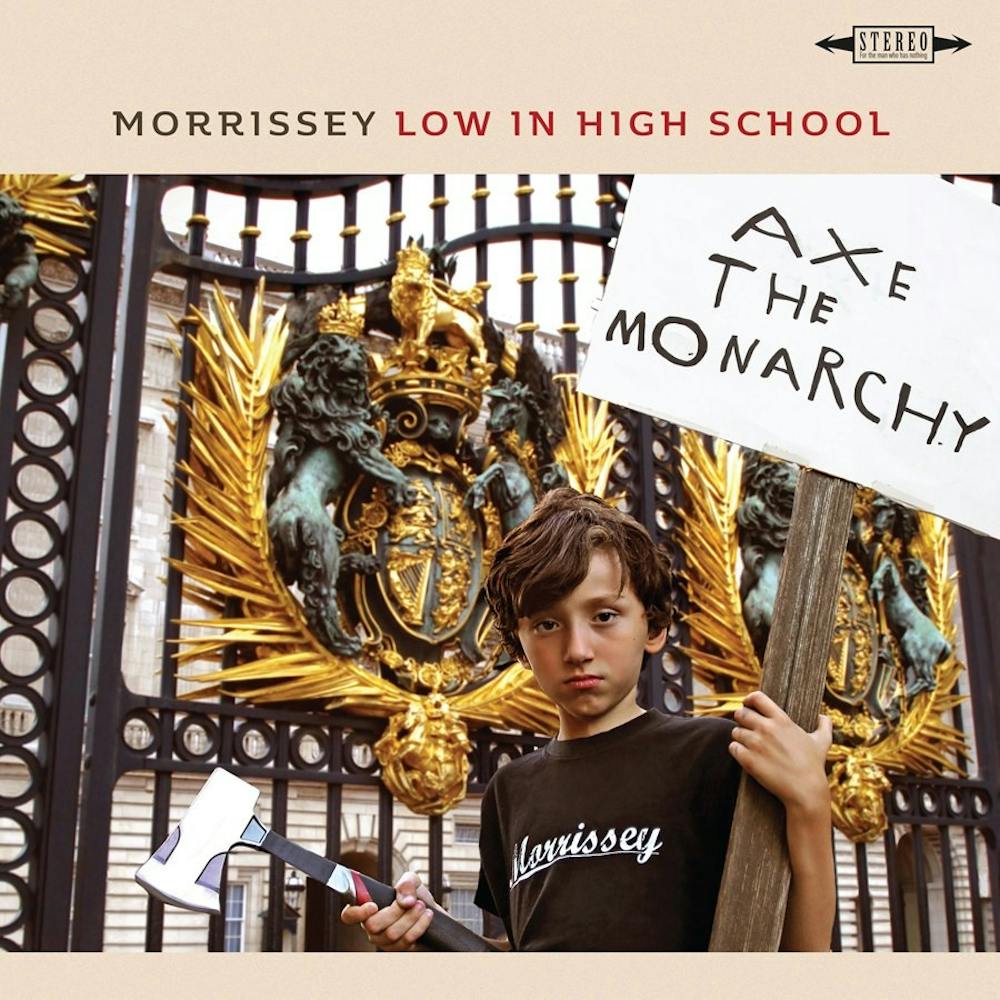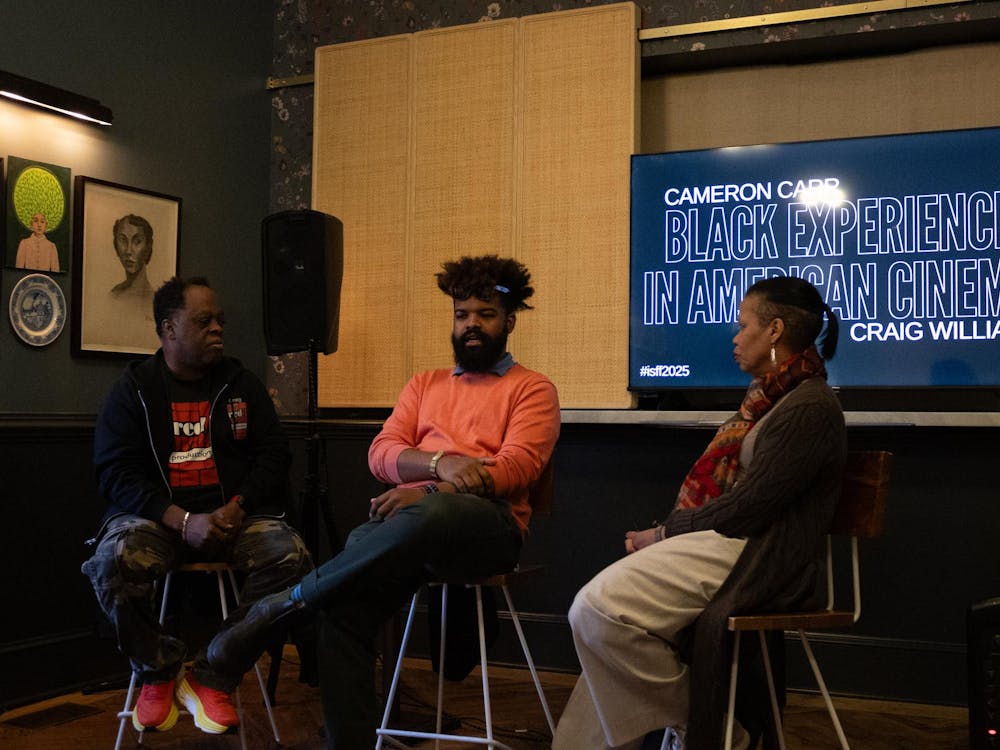Language affords people the opportunity to communicate and understand what is otherwise ineffable. The more accurately a phrase describes one’s sentiments, the more alluring and impactful it appears.
For decades, indie rock artist Morrissey has captivated generations of forlorn and disaffected individuals with his ardent pining. His lyrics have been analyzed by scholars and his aesthetic held in fascination by fans. Following the tone set by “World Peace Is None of Your Business,” his 11th studio album “Low in High School” offers acrimonious commentary on the current state of the world. Though no Morrissey project is seemingly complete without his trademark songs of loneliness and problematic affection, this album largely trades introspective musing for external criticism.
Confident and bold, the chorus of the opening track “My Love, I'd Do Anything for You” descends into a Bond-esque theme, complete with the pomp and circumstance of a full horn section. Morrissey plainly states, “You know me well / My love, I'd do anything for you / Society's hell / You need me just like I need you.”
The hit single released before the rest of the album, “Spent the Day in Bed,” plays like a comforting self-help book, urging fans to turn off the news and enjoy a day free of obligation and outside pressure. The quirky melody is easygoing and coalesces well with the urgent rhythm. The near seven-and-a-half-minute song “I Bury the Living” features a caustic first-person narrative of the life of a soldier. No apologies or hesitant explanations are made throughout the course of this album — instead, Morrissey’s lyrics are declarative.
The tracks “Home is a Question Mark” and “I Wish You Lonely” are the only songs that more deeply explore internal turmoil. The lyrics, “I have been brave / Deep in every shaven cave / None were you” from the former allude to a certain inability to feel entirely at ease in one’s surroundings. Alternatively, the words in the latter, “I wish you lonely / If only for one day / So that you might see routine for me” detail the isolation which earned Morrissey the epithet “Pope of Mope.”
Musically, the album is diverse. Piano ballads, latin rhythms, retro synths and distorted guitars render “Low in High School” a sonic pick 'n mix. The song “Jacky’s Only Happy When She’s Up on the Stage” features a Kim Deal-inspired bass fugue, and “All the Young People Must Fall in Love” channels the songwriting styles of The Beatles. The pulsing, synthetic bass of “Who Will Protect Us from the Police” and ambient keys of “I Wish You Lonely” point to an increase in electronic sounds. While the musical exploration is certainly refreshing, the emphasis is clearly placed on the vocals. Many of the instrumentals feel like canvases with some of the instrumentation layered lower in the mix.
The instrumentals are well-crafted and enjoyable, but they often fall short of memorable. The earnestness and wit of Morrissey’s lyrics is clear, but they are certainly not his best. Rather, the true highlight of this album is its wide variety of novel vocal melodies. Whether delivered with falsetto or full-chested expression, Morrissey boasts his knack for catchy phrasing. Ultimately, “Low in High School” provides listeners with an assortment of satisfying music, but it does not achieve unprecedented acclaim.







